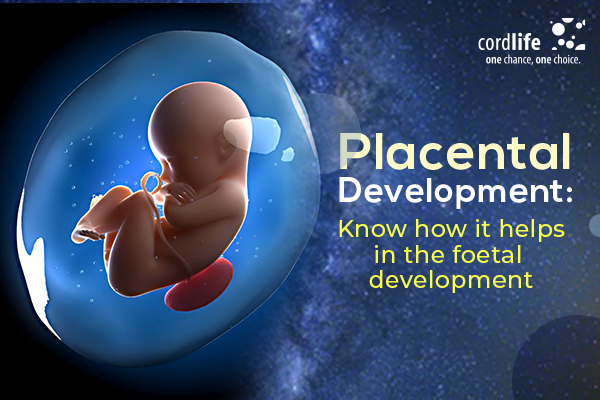Table of Contents
- What Else?
- The Placenta Works As A Selective Barrier
- The Placenta Is Responsible For Producing Hormones During Pregnancy
- Placenta Acts As The Baby’s Liver
- Placenta Helps In Breaking Down The Food Particles
- The Placenta Helps In Clearing Out Waste Products
- Factors That Affect The Placenta Development During Pregnancy
- What Are Placental Complications?
The placenta, the most vital organ between you and your baby, during your pregnancy, is born out of the same cells as that of the embryo and attaches itself to the inner wall of the uterus.
Placenta development during pregnancy takes place by the 12th week of your pregnancy and grows with the baby and the volume of the amniotic fluid.
The placenta is extremely essential for foetal development as it nourishes the baby with the much-needed oxygen and all-essential nutrients (through the umbilical cord blood), eliminates the waste material and gives a safe environment to help the baby to develop inside.
What Else?
The Placenta Works As A Selective Barrier
During pregnancy, the placenta functions as a selective barrier between the mother and foetal cells, by allowing the proteins and microbes (bacteria and virus) to pass through it, before entering the developing baby’s bloodstream. In this way, it also protects the mother’s bloodstream.
The Placenta Is Responsible For Producing Hormones During Pregnancy
And it first produces the human chorionic gonadotropin. While taking a pregnancy test, the human chorionic gonadotropin (hCG) hormone indicates pregnancy. The progesterone produced helps in implanting the embryo by assisting passage through the fallopian tubes. Oestrogen is a crucial hormone produced, which is responsible for the enlargement of the breasts and the uterus and for increasing blood flow during pregnancy. Human placental lactogen is a hormone produced in pregnancy to develop foetal metabolism and its general growth and development.
Placenta Acts As The Baby’s Liver
Much before the foetal liver is formed and stores fat to synthesise fatty acid that passed down from the mother.
Placenta Helps In Breaking Down The Food Particles
During pregnancy, the would-be mummy is on a healthy diet. The placenta breaks it down for the easy absorption of the baby growing inside.
The Placenta Helps In Clearing Out Waste Products
When materials like, urea, creatinine, and uric acid which passes down from the pregnant mother’s bloodstream to the developing fetus.
Factors That Affect The Placenta Development During Pregnancy
- When the would-be mother’s age is above 40 years
- If the would-be mother underwent any kind of trauma in the abdominal region
- If the pregnant woman has high Blood Pressure
- If the would-be mother was earlier Pregnant with twins
- Basically, the amniotic sac helps in the cushioning of the baby in the womb, but if it ruptures before the labour begins, the placenta might be at risk
- Consumption of certain medicines, drugs, etc
- Gestational Diabetes
What Are Placental Complications?
The placental complications are:
- Placenta Accreta is when the placenta attaches very deeply to the uterine wall
- Placenta Previa is when the placenta is either close to the cervix or blocks the cervix
- Placenta Abruption is when the placenta disrupts pre-maturely
- Placentitis is when there is inflammation of the placenta due to infection.
- Retained Placenta, when the baby is delivered, the placenta is also delivered. However, sometimes parts of the placenta are still attached to the uterine wall. This is referred to as “retained placenta.”
If you happen to get signs of placental complications like vaginal bleeding, abdominal pain, back pain and uterine contractions, consult your doctor immediately.
Also, as an expectant mother, while you’re taking care of yourself, plan to safeguard your baby’s health and your family’s healthy future with cord blood banking.
